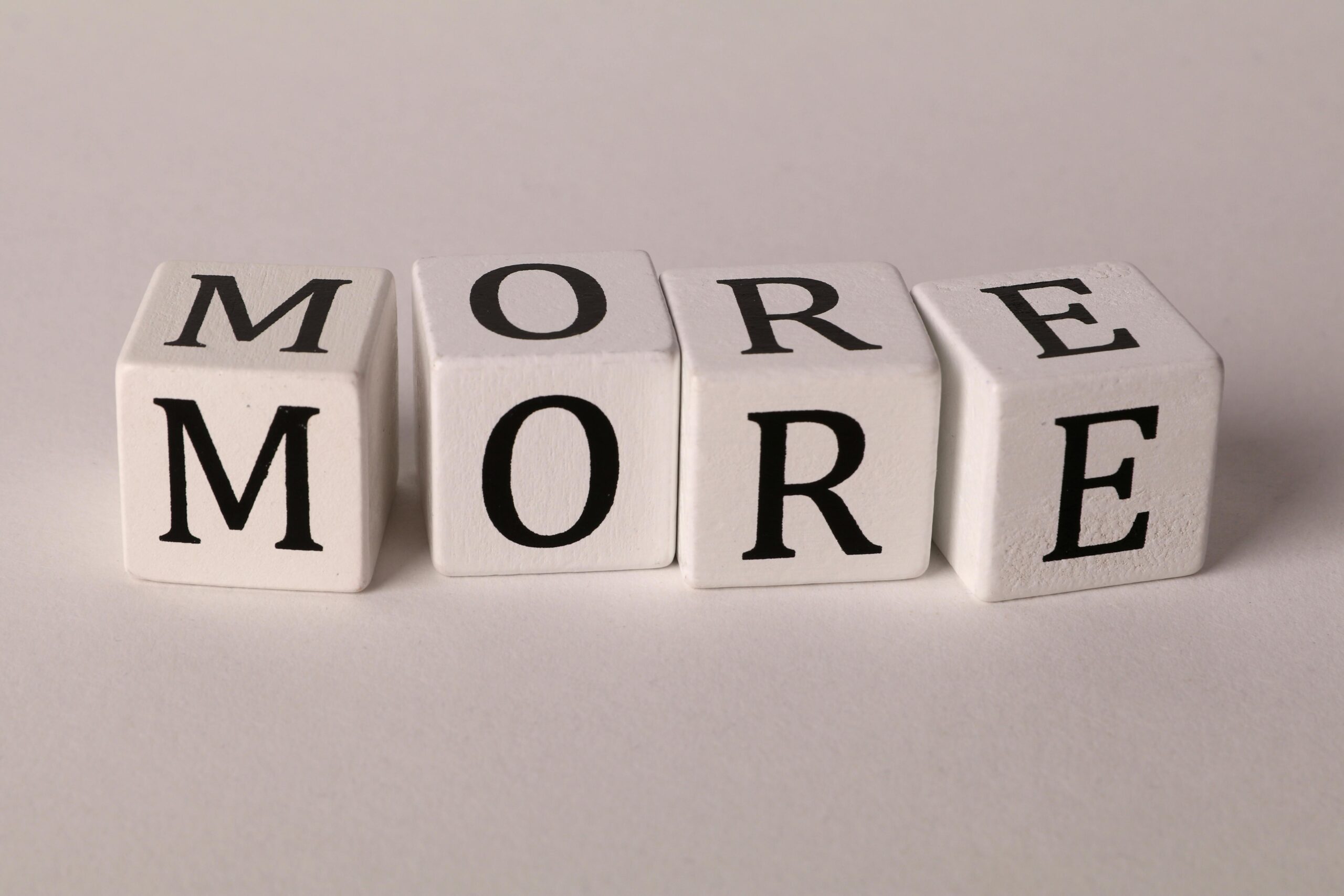Is the Chase for “More” Quietly Draining Your Finances?
Why is it that no matter how much we earn, buy, or achieve, it never quite feels like enough? Think back to your first big purchase. Maybe it was your first iPhone, your first car, or even that first sofa you bought with your own money. Remember the thrill of finally owning it? The sense that this was going to change your life? Fast forward a few months and it just became part of your everyday. The excitement faded, and suddenly your eyes wandered to the next thing. A newer phone. A nicer car. A large home. That moving finish line, where today’s dream becomes tomorrow’s ordinary, has a direct impact on your financial life.
How it Affects Spending
We are wired to keep chasing that initial high. Buy, feel great for a bit, then adapt. Which leads us to buy again. It does not stop at possessions either. Many of us start chasing the same feeling through experiences such as more trips, more outings, more activities. And while there is nothing wrong with enjoying these, the cycle can leave us with clutter, debt, and no deeper sense of contentment.
How it Affects Investing
The same cycle can creep into our investing decisions. You put money into one fund, but then hear about another that sounds better. You move your money. Then another option comes along. And another. This constant switching is costly. It chips away at returns and undermines the very thing investing needs most: time. To quote Warren Buffett, “No matter how great the talent or efforts, some things just take time. You cannot produce a baby in one month by getting nine women pregnant.”
How to Step Off the treadmill
Here are some practical ways to reset:
- Be aware of the pattern. That buzz you get from a new purchase is short-lived. Savor it, but do not mistake it for lasting happiness.
- Audit your spending. Ask yourself whether you are buying out of genuine need or for the temporary lift. That awareness helps break the cycle.
- Commit to your investments. Research carefully, diversify, and then stick with your plan. Review once a year, not every time a new product pops up.
- Practice gratitude. Regularly take stock of what you already have. It slows down the endless urge for upgrades.
- Work on inner contentment. This is a lifelong process, but practices like mindfulness or reflection can help you feel grounded without needing the next big thing.
We all fall into this cycle at times. But with awareness and intention, you can make different choices. You can spend and invest in ways that bring peace now and security later. Happiness in the moment matters. But your future self deserves happiness too.
If you would like to explore how to build a financial plan that supports both, I offer a complimentary 30-minute session that you can book HERE.
